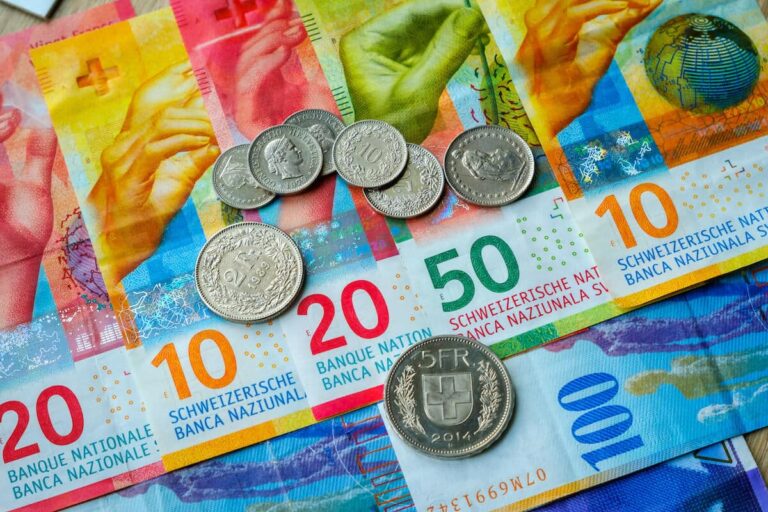Switzerland’s reputation as a global banking powerhouse is matched by the strength and stability of its currency, the Swiss franc (CHF). Whether you’re planning a visit, moving to Switzerland, or sending money to friends and family there, understanding the Swiss franc can help you make the most of your finances.
In this guide, we’ll explore the history of Swiss currency, key facts about the franc, and practical tips for exchanging and using money in Switzerland.
History of the Swiss Franc
Switzerland has a long history of diverse currencies. Before the creation of the Swiss franc in 1848, each canton (state) issued its own currency. The Federal Coinage Act of 1850 established the franc as the official national currency, replacing regional currencies like the Bern livre and the South German gulden.
Switzerland’s decision to remain outside the eurozone has allowed it to maintain the independence and stability of its currency, further solidifying the franc as a “safe haven” in global finance.
Swiss Franc Denominations
The Swiss franc is subdivided into 100 centimes (French), rappen (German), centesimo (Italian), or rap (Romansh).
Banknotes
- 10, 20, 50, 100, 200, 1,000 francs (occasionally 500 francs)
Coins
- 5, 10, 20 centimes
- ½, 1, 2, 5 francs
Modern Swiss banknotes feature themes such as innovation, science, and art, moving away from portraits of famous individuals to focus on the country’s “many facets.” The notes incorporate advanced security features, including microtext, colour-changing inks, and polymer threads.
Six Key Facts About the Swiss Franc
1. The Currency Code CHF Has Latin Roots
The currency code CHF stands for Confoederatio Helvetica franc, Latin for “Swiss Confederation.” Switzerland uses the abbreviation Fr., as it does not have a distinct currency symbol like £ or $.
2. Switzerland Is the Last European Country to Use the Franc
While the franc originated in France and was widely used across Europe, most countries have transitioned to the euro. Switzerland remains the only European country to issue the franc.
3. The Swiss Franc Is Among the World’s Most-Traded Currencies
As of 2022, the Swiss franc was the eighth-most-traded currency globally, accounting for 5% of all foreign exchange transactions.
4. The Franc Has a History of Pegged Exchange Rates
Switzerland joined the Latin Monetary Union in 1865, aligning its currency value with France, Belgium, and Italy. More recently, the Swiss National Bank capped the exchange rate at 1.20 CHF to 1 EUR between 2011 and 2015 to stabilise the currency.
5. Swiss Currency Is Partially Backed by Gold
While Switzerland removed the gold standard in 1999, it still holds approximately 7% of its reserves in gold, maintaining a degree of backing for its currency.
6. The Swiss Franc Is Legal Tender in Liechtenstein
Liechtenstein does not issue its own currency, relying instead on the Swiss franc. The franc is also used in the Italian enclave of Campione d’Italia.
Exchanging and Using the Swiss Franc
Currency Exchange
If you’re travelling to Switzerland, exchanging pounds for francs is advisable, as euros are only accepted in some tourist establishments. However, you’ll receive change in francs, often at less favourable rates.
Payment Methods
Cash isn’t always necessary in Switzerland’s highly developed economy. Most businesses, including small shops, accept debit and credit cards. However, carrying some cash is useful for rural areas or smaller transactions.
ATMs
Swiss ATMs allow withdrawals in francs, and in some cases euros. Before travelling, check with your UK bank regarding international fees.
Exchange Rates
The Swiss franc is considered one of the world’s most stable currencies, but exchange rates can fluctuate. For the best value, compare rates from trusted providers and avoid high-fee exchanges.
Sending Money to Switzerland
If you need to send money to Switzerland, services like Remitly offer fast and transparent international transfers. Funds can be deposited directly into Swiss bank accounts, including UBS and Credit Suisse, or onto debit cards.
